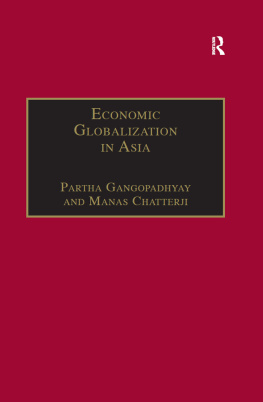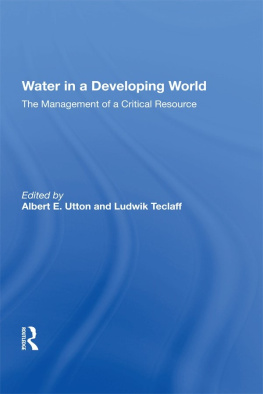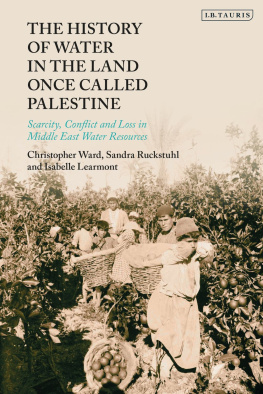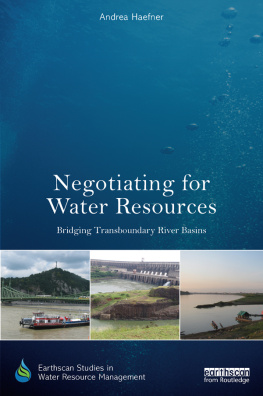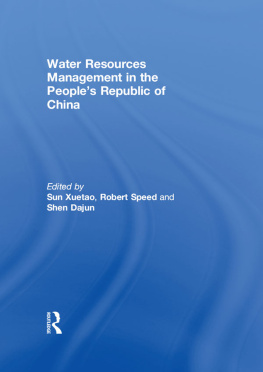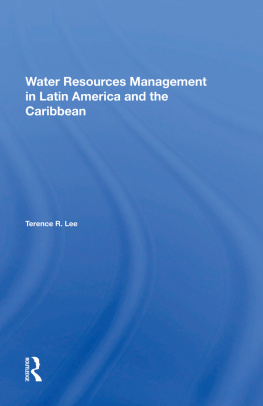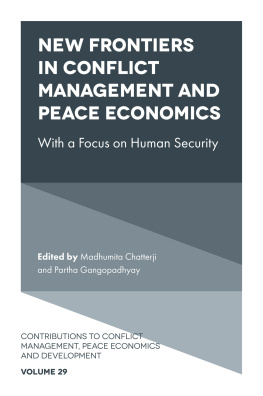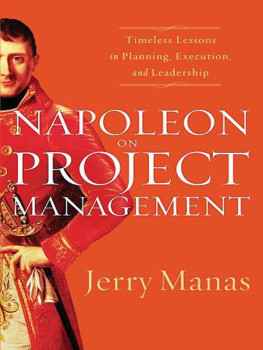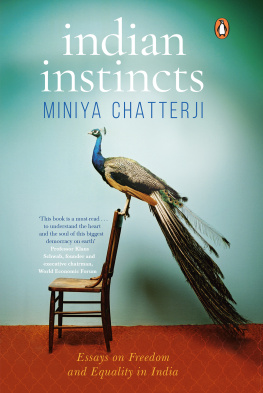Manas Chatterji - Conflict Management of Water Resources
Here you can read online Manas Chatterji - Conflict Management of Water Resources full text of the book (entire story) in english for free. Download pdf and epub, get meaning, cover and reviews about this ebook. year: 2017, publisher: Taylor and Francis, genre: Politics. Description of the work, (preface) as well as reviews are available. Best literature library LitArk.com created for fans of good reading and offers a wide selection of genres:
Romance novel
Science fiction
Adventure
Detective
Science
History
Home and family
Prose
Art
Politics
Computer
Non-fiction
Religion
Business
Children
Humor
Choose a favorite category and find really read worthwhile books. Enjoy immersion in the world of imagination, feel the emotions of the characters or learn something new for yourself, make an fascinating discovery.

- Book:Conflict Management of Water Resources
- Author:
- Publisher:Taylor and Francis
- Genre:
- Year:2017
- Rating:5 / 5
- Favourites:Add to favourites
- Your mark:
- 100
- 1
- 2
- 3
- 4
- 5
Conflict Management of Water Resources: summary, description and annotation
We offer to read an annotation, description, summary or preface (depends on what the author of the book "Conflict Management of Water Resources" wrote himself). If you haven't found the necessary information about the book — write in the comments, we will try to find it.
Conflict Management of Water Resources — read online for free the complete book (whole text) full work
Below is the text of the book, divided by pages. System saving the place of the last page read, allows you to conveniently read the book "Conflict Management of Water Resources" online for free, without having to search again every time where you left off. Put a bookmark, and you can go to the page where you finished reading at any time.
Font size:
Interval:
Bookmark:

Manas Chatterji
State University of New York at Binghamton, USA
Saul Arlosoroff
State Commission on the Water Sector Reform, Israel
Gauri Guha
Arkansas State University, USA

2 Park Square, Milton Park, Abingdon, Oxon, OX14 4RN
711 Third Avenue, New York, NY 10017
Product or corporate names may be trademarks or registered trademarks, and are used only for identification and explanation without intent to infringe.
The publisher has gone to great lengths to ensure the quality of this reprint but points out that some imperfections in the original copies may be apparent.
The publisher has made every effort to trace copyright holders and welcomes correspondence from those they have been unable to contact.
| Chapter 1 |
| Chapter 2 |
| Chapter 5 |
| Chapter 8 |
| Chapter 9 |
| Chapter 18 |
| Chapter 2 |
| Chapter 4 |
| Chapter 5 |
| Chapter 6 |
| Chapter 7 |
| Chapter 8 |
| Chapter 9 |
| Chapter 18 |
Chairperson, State Commission on the Water Sector Reform, Israel
Formally Global Program Manager
World Bank/UNDP Water Unit and Sanitation Program
Indian Institute of Management
Calcutta, India
Researcher
School of Oriental and African Studies
London, U.K.
Research Coordinator, Groundwater Arsenic Research Group
Division of Land and Water Resources
Royal Institute of Technology
Stockholm, Sweden
Professor of Management
State University of New York at Binghamton, U.S.A.
Indian Institute of Management
Calcutta, India
Peking University
Bejing, China
Professor of Planning
State University of New York at Buffalo, U.S.A.
Independent Consultant
Water Resources Conflict Management
New York City, U.S.A.
Arkansas State University, U.S.A.
Formerly Director, Agricultural Climate Regional Planning Unit
Ahmedabad, India
Senior Staff Writer
Asahi Shimbun,
Tokyo, Japan
Coordinator
Viksat, Thaltej Tekra
Ahmedabad, India
Professor
York University
Toronto, Canada
Independent Consultant
Ahmedabad, India
Research Scientist
Department of Limnology and Environmental Protection
University of Helsinki, Finland
Chief Energy Advisor and Chairperson
National Energy Council, Government of Sri Lanka
formerly of World Bank
Late Chancellor,
Gujarat Vidyapith
Ahmedabad, India
Peace Research Center
Gujarat Vidyapith
Ahmedabad, India
Agro Industries and Tribal Welfare Foundation
Maharashtra, India
Prof, of Civil Engineering and Director
Center for Water Studies
Patna University
Bihar, India
Chair Professor of Urban Economics
ESSEC and ENPE
Paris, France
Executive Chairperson
Institute for Integrated Development Studies
Kathmandu, Nepal
Dept. of Political Science
Tel Aviv University, Israel
Peace Research Center
Gujarat Vidyapith
Ahmedabad, India
UN Research Institute for Social Development
Geneva, Switzerland and Associate Professor
Department of Peace and Conflict Research
Uppsala University, Sweden
Lecturer of Urban and Regional Planning
University of Dortmund, Germany
Font size:
Interval:
Bookmark:
Similar books «Conflict Management of Water Resources»
Look at similar books to Conflict Management of Water Resources. We have selected literature similar in name and meaning in the hope of providing readers with more options to find new, interesting, not yet read works.
Discussion, reviews of the book Conflict Management of Water Resources and just readers' own opinions. Leave your comments, write what you think about the work, its meaning or the main characters. Specify what exactly you liked and what you didn't like, and why you think so.

